Collaborating with Colleges and Universities for Redevelopment Opportunities
Sponsored by: U.S. EPA, Office of Land and Emergency Management (OLEM), Superfund Redevelopment Initiative
Archived: Wednesday, July 29, 2020
Collaborating with Colleges and Universities for Redevelopment Opportunities
Wednesday, July 29, 2020, 2:00 PM-3:30 PM EDT (18:00-19:30 GMT)
The College/Underserved Community Partnership Program (CUPP) provides a creative approach by partnering and delivering technical assistance from local colleges and universities to small underserved communities at no cost to the communities. EPA Region 4 has successfully collaborated with colleges and universities to assist communities in pursuing redevelopment opportunities and plans at sites in the Region. This webinar will share best practices and lessons learned as well as share the perspectives of the partnered colleges and universities.
Accessibility, Recording, and Content Disclaimer
Rehabilitation Act Notice for Reasonable Accommodation
It is EPA's policy to make reasonable accommodation to persons with disabilities wishing to participate in the agency's programs and activities, pursuant to the Rehabilitation Act of 1973, 29 U.S.C. 791. Any request for accommodation should be made to Lynette Vanderpool at 434-975-6700 or lvanderpool@skeo.com, preferably one week or more in advance of the webinar, so that EPA will have sufficient time to process the request. EPA would welcome specific recommendations from requestors specifying the nature or type of accommodation needed. Please note that CLU-IN provides both alternate phone call-in options and closed captioning for all webinars, and requests for these specific accommodations are not necessary.
Webinar Recording
By participating in this CLU-IN webinar, you automatically agree to authorize recording of audio and visual content presented during this live event and consent to subsequent use of this recording in the public domain by the U.S. Environmental Protection Agency. This recording may include questions, comments and poll responses provided by you during the live event in addition to your name, voice, image or likeness. This recording will be made available after the conclusion of the live event as part of the CLU-IN webinar archives, and will remain available indefinitely. If you do not wish to consent to the recording, please do not join the live event, and contact Jean Balent at 202-566-0832 or balent.jean@epa.gov to discuss your concerns.
Content Disclaimer
This webinar is intended solely to provide information to the public. The views and opinions expressed as part of this webinar do not necessarily state or reflect those of the U.S. Environmental Protection Agency. It is not intended, nor can it be relied upon, to create any rights enforceable by any party in litigation with the United States, or to endorse the use of products or services provided by specific vendors. With respect to this webinar, neither the United States Government nor any of their employees, makes any warranty, express or implied, including the warranties of merchantability and fitness for a particular purpose, or assumes any legal liability or responsibility for the accuracy, completeness, or usefulness of any information, apparatus, product, or process disclosed, or represents that its use would not infringe privately owned rights.
Presenters:
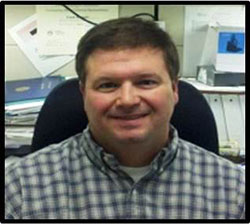 Frank Avvisato, EPA Superfund Redevelopment Initiative (avvisato.frank@epa.gov or 703-603-8949)
Frank Avvisato, EPA Superfund Redevelopment Initiative (avvisato.frank@epa.gov or 703-603-8949)
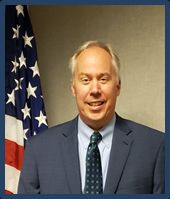 Scott Miller, EPA Region 4 (miller.scott@epa.gov or 404-562-9120)
Scott Miller, EPA Region 4 (miller.scott@epa.gov or 404-562-9120)
Scott began his career at EPA in 1991, working on air permitting issues in APTMD. Since 2006, Scott has worked as an RPM in the Superfund Division. Scott has worked on complex sites such as Cabot Carbon/Koppers, Capitol City Plume, Camilla Wood Preserving, Alabama Plating, Townsend Saw Chain, Clinch River Corporation, Smokey Mountain Smelters, Tyndall Air Force Base, and Hipps Road Landfill. Scott established working relationships with colleges such as the University of Florida, Maryville College, Clemson University, and the University of West Florida to assist communities in potential Site redevelopment efforts, as well as meeting other community needs that were not accessible through the traditional Site cleanup process. Scott has also served in detail positions in the College Underserved Community Partnership (CUPP) program, Section Chief of the Restoration and Sustainability Section, and Section Chief of the Air Toxics and Implementation Section. Scott is a Certified Hazardous Material Manager, and active Board Member of the Alliance of Hazardous Material Professionals Georgia Chapter. Scott graduated from the Georgia Institute of Technology in 1989 with a degree in Industrial and Systems Engineering, and obtained an MBA in Finance from Georgia State University in 2000. Scott works as a Superfund Redevelopment Coordinator for the Region and a Section Chief for the Restoration and Sustainability Section.
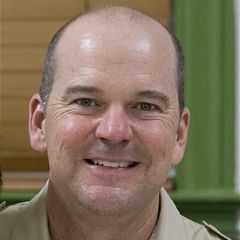 William C. Denman, P.E., EPA Region 4 Redevelopment and Chemicals Branch (Denman.bill@Epa.gov or 404-562-8939)
William C. Denman, P.E., EPA Region 4 Redevelopment and Chemicals Branch (Denman.bill@Epa.gov or 404-562-8939)
Bill Denman is chief of the Site Assessment and Remedy Decisions Branch in the Office of Superfund Remediation and Technology Innovation.
Bill has a long career in managing the cleanup and redevelopment of land. He has led multiple cleanup programs under Superfund and RCRA, working in EPA's Superfund program for nearly 20 years as a site cleanup project manager, land redevelopment coordinator and section chief. He helped facilitate the sale and redevelopment of many Superfund sites throughout the southeast and has had major influence in the development of national EPA policy related to the redevelopment of contaminated land. Prior to working in the Superfund program, Bill worked in EPA's Air Program and for the U.S. Navy, designing and testing diving systems for U.S. Navy divers.
Bill has a master's degree in Sustainability from Harvard University and a bachelor's degree in Mechanical Engineering from Mississippi State University. He is a frequent guest lecturer on the topic of redeveloping contaminated properties for graduate classes at Harvard, Emory, Georgia Tech, and Georgia State and is a registered professional engineer in the State of Georgia.
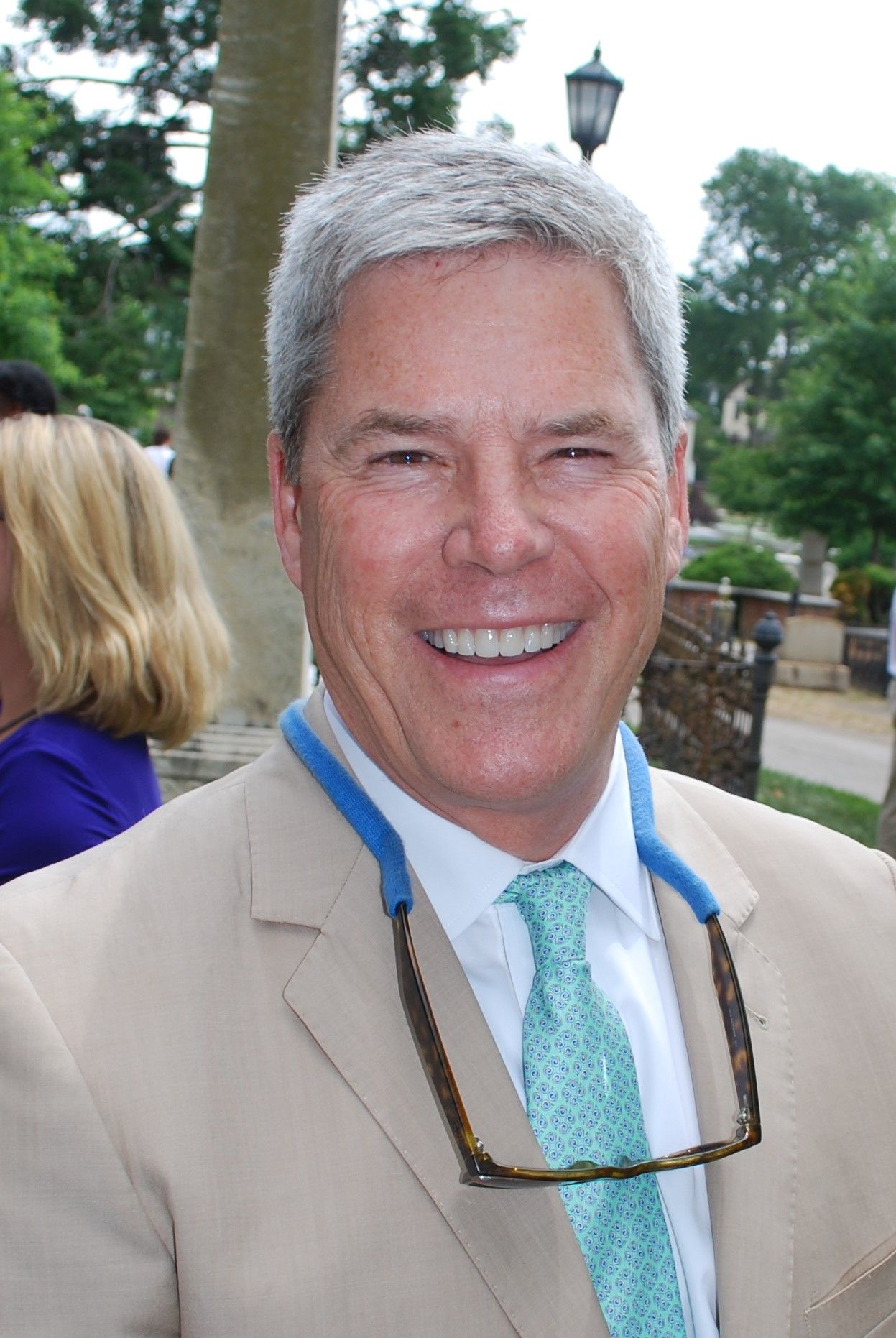 Dr. Robert Benedict, Clemson University (benedic@clemson.edu)
Dr. Robert Benedict, Clemson University (benedic@clemson.edu)
Robert Benedict is a Professor of Practice and the former Director of the Master of Real Estate Development program at Clemson University. Dr. Benedict received his Master of Business Administration from the University of Georgia, a Master of Arts in Historic Preservation from Goucher College and a Ph.D. in Environmental Design and Planning from Clemson. He taught Preservation Economics at the University of Georgia and currently teaches Development Process, Real Estate Technology, Real Estate Market Analysis, Preservation Feasibility and the commercial Practicum course at Clemson. He has published in peer reviewed journals and has two book chapters: "The Future of Preservation Economics and Historic Urban Housing", Historic Preservation in the 21st Century, published 2018, Cambridge Scholars Press and "The Critical Role of Preservation in Graduate Real Estate Curricula", co-authored with Cari Goetcheus, Preservation Education: Sharing Best Practices and Finding Common Ground, published 2013, University Press of New England. Prior to his academic career, Robert was a Real Estate Investment Manager with The Travelers Insurance Company, a developer and a historic preservation consultant.
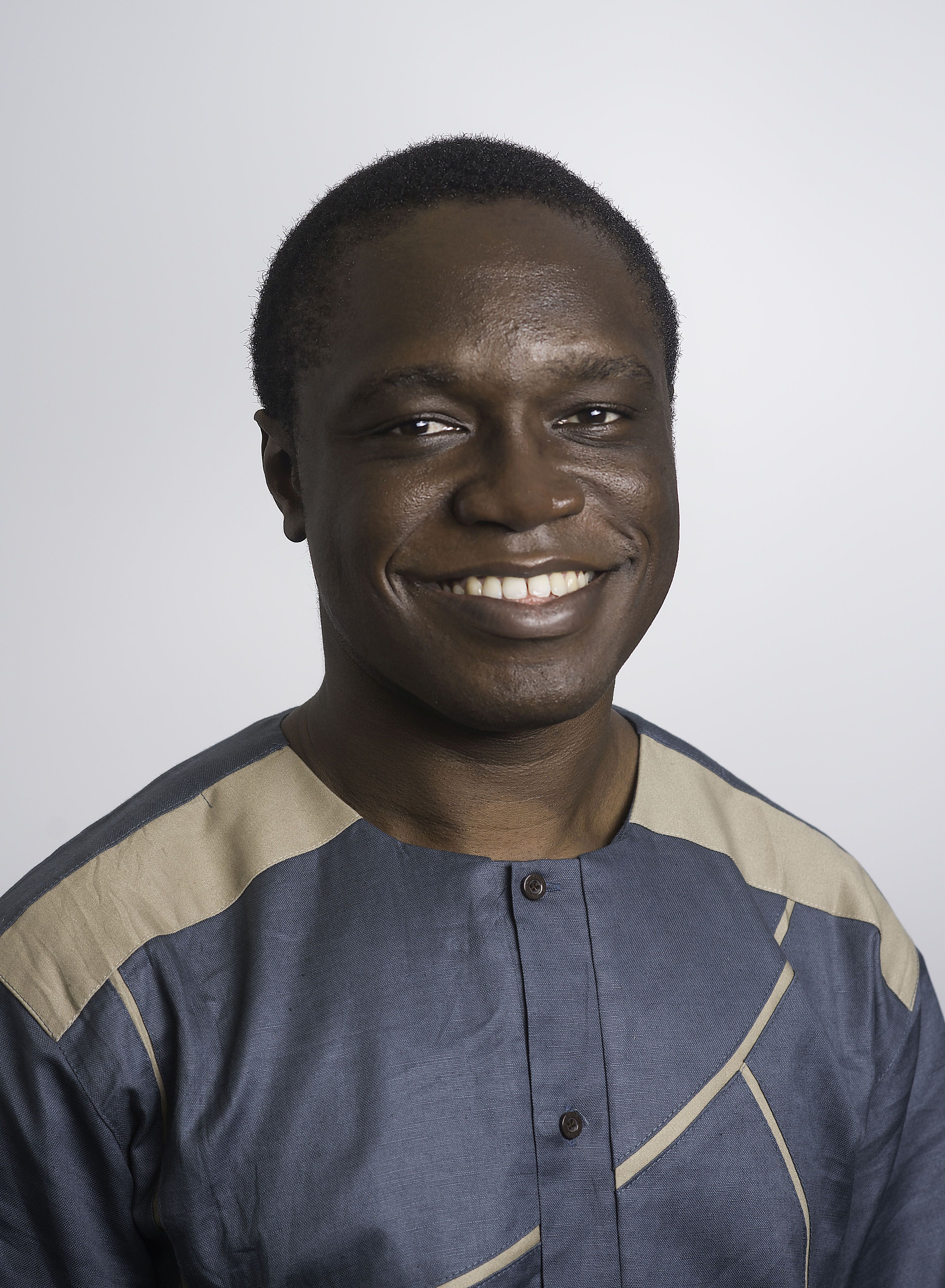 Dr. Kwame Owusu-Daaku, University of West Florida (kowusudaaku@uwf.edu)
Dr. Kwame Owusu-Daaku, University of West Florida (kowusudaaku@uwf.edu)
Dr. Kwame N. Owusu-Daaku is an Assistant Professor in the Department of Earth and Environmental Sciences in the Hal Marcus College of Science and Engineering at the University of West Florida (Pensacola, FL). Dr. Owusu-Daaku teaches courses related to human geography, environmental management and planning, and sustainability. He is also interested in community engagement, and civic scholarship. With a background and training in qualitative research methods, Dr. Owusu-Daaku's research focuses on the impacts of climate change and pollution on marginalized groups in coastal and inland coastal communities and the efforts of these groups to build resilience to these impacts. Specifically, he is interested in the ways in which climate change adaptation and brownfield redevelopment influences the practice of planning, producing new and unique impacts on marginalized populations in both rural and urban settings, locally and internationally. The goal of his research program is to pair this focus on unequal impacts with strategies such as citizen science to build awareness of - and inspire action to improve - socio-environmental problems.
CUPP projects he has worked on with students include Redevelopment Planning for the Mid-Town Commerce Park for Escambia County, FL; Re-design and Re-use of the American Creosote Works site for the City of Pensacola, FL; and Post-Hurricane Michael Housing Redevelopment Planning for Calhoun County, FL.
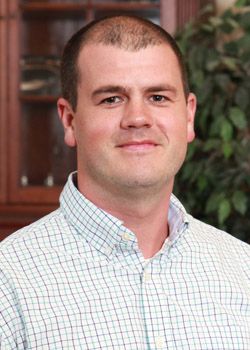 Dr. Andrew Gunnoe, Maryville College (andrew.gunnoe@maryvillecollege.edu)
Dr. Andrew Gunnoe, Maryville College (andrew.gunnoe@maryvillecollege.edu)
Andrew Gunnoe is an Assistant Professor of Sociology at Maryville College. He received his Ph.D. in Sociology from the University of Tennessee, Knoxville in 2012. Upon completion of his graduate work he spend two years in a Postdoctorate fellowship in the Department of Agricultural Economics & Rural Sociology at Auburn University. Dr. Gunnoe's research focuses primarily on political economy, natural resources, and land ownership. His research has been published in leading sociology journals, including Rural Sociology and Social Forces.
Moderator:
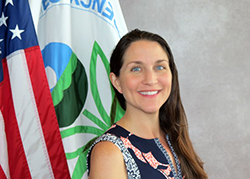 Jean Balent, U.S. EPA Technology Innovation and Field Services Division (balent.jean@epa.gov or 202-566-0832)
Jean Balent, U.S. EPA Technology Innovation and Field Services Division (balent.jean@epa.gov or 202-566-0832)
Ms Balent is on the staff of the EPA's Technology Innovation and Field Services Division where she has worked to collect and disseminate hazardous waste remediation and characterization information since 2003. Ms Balent manages the Clean Up Information Network website and actively supports online communication and collaboration resources available to EPA. She formerly worked with the US Army Corps of Engineers Environmental Engineering Division in the Buffalo District. Ms Balent was also a member of the SUNY-Buffalo Groundwater Research Group where she constructed and tested large scale models of groundwater flow. Ms Balent has also conducted research relating to the Great Lakes, environmental remediation, and brownfields re-development. She holds a Bachelor's degree in environmental engineering from SUNY-Buffalo and a Master's degree in Information Technology from AIU.
Webinar Slides and References:
-
 Slide Presentation for Scott Miller; E.P.A. Region 4 (785KB/PDF)
Slide Presentation for Scott Miller; E.P.A. Region 4 (785KB/PDF)
-
 Slide Presentation for William Denman, P.E.; E.P.A. Region 4 (508KB/PDF)
Slide Presentation for William Denman, P.E.; E.P.A. Region 4 (508KB/PDF)
-
 Slide Presentation for Robert Benedict, Ph.D; Clemson University (14.1MB/PDF)
Slide Presentation for Robert Benedict, Ph.D; Clemson University (14.1MB/PDF)
-
 Slide Presentation for Kwame Owusu-Daaku, Ph.D; UWF (1.63MB/PDF)
Slide Presentation for Kwame Owusu-Daaku, Ph.D; UWF (1.63MB/PDF)
-
 Slide Presentation for Andrew Gunnoe, Ph.D; Maryville College (1.15MB/PDF)
Slide Presentation for Andrew Gunnoe, Ph.D; Maryville College (1.15MB/PDF)
-
 Slide Presentation for Scott Miller; E.P.A. Region 4 (850KB/PDF)
Slide Presentation for Scott Miller; E.P.A. Region 4 (850KB/PDF)
Webinar Slides and References:
-
 Slide Presentation for Scott Miller; E.P.A. Region 4 (785KB/PDF)
Slide Presentation for Scott Miller; E.P.A. Region 4 (785KB/PDF)
-
 Slide Presentation for William Denman, P.E.; E.P.A. Region 4 (508KB/PDF)
Slide Presentation for William Denman, P.E.; E.P.A. Region 4 (508KB/PDF)
-
 Slide Presentation for Robert Benedict, Ph.D; Clemson University (14.1MB/PDF)
Slide Presentation for Robert Benedict, Ph.D; Clemson University (14.1MB/PDF)
-
 Slide Presentation for Kwame Owusu-Daaku, Ph.D; UWF (1.63MB/PDF)
Slide Presentation for Kwame Owusu-Daaku, Ph.D; UWF (1.63MB/PDF)
-
 Slide Presentation for Andrew Gunnoe, Ph.D; Maryville College (1.15MB/PDF)
Slide Presentation for Andrew Gunnoe, Ph.D; Maryville College (1.15MB/PDF)
-
 Slide Presentation for Scott Miller; E.P.A. Region 4 (850KB/PDF)
Slide Presentation for Scott Miller; E.P.A. Region 4 (850KB/PDF)
Additional Resources:
- Seminar Archives
- EPA's Superfund Redevelopment
- Superfund Redevelopment Basics
- Regional Superfund Redevelopment Coordinator Contacts
- Superfund Redevelopment Partnerships
- College/Underserved Community Partnership Program
- Superfund Redevelopment Ready for Reuse Fact Sheets
- Superfund Redevelopment Success Stories, Fact Sheets and Case Studies
- Ready for Reuse (RfR) Determinations
- Superfund Redevelopment Quarterly Webinar Series
 EPA Region 4 Prospective Purchaser Inquiry (PPI) Fact Sheet
EPA Region 4 Prospective Purchaser Inquiry (PPI) Fact Sheet - Top 10 Questions to Ask When Buying a Superfund Site
 Reuse Assessments: A Tool to Implement the Land Use Directive (2001)
Reuse Assessments: A Tool to Implement the Land Use Directive (2001) - The Revitalization Handbook - Revitalizing Contaminated Lands: Addressing Liability Concerns
- Prospective Purchaser Agreements (PPA)
- Superfund Task Force
If you have a suggested topic or idea for a future CLU-IN internet seminar, please contact:
Technology Integration and Information Branch
PH: 202-566-0832 | Email: balent.jean@epa.gov
Technology Integration and Information Branch
PH: 202-566-0875 | Email: adam.michael@epa.gov





